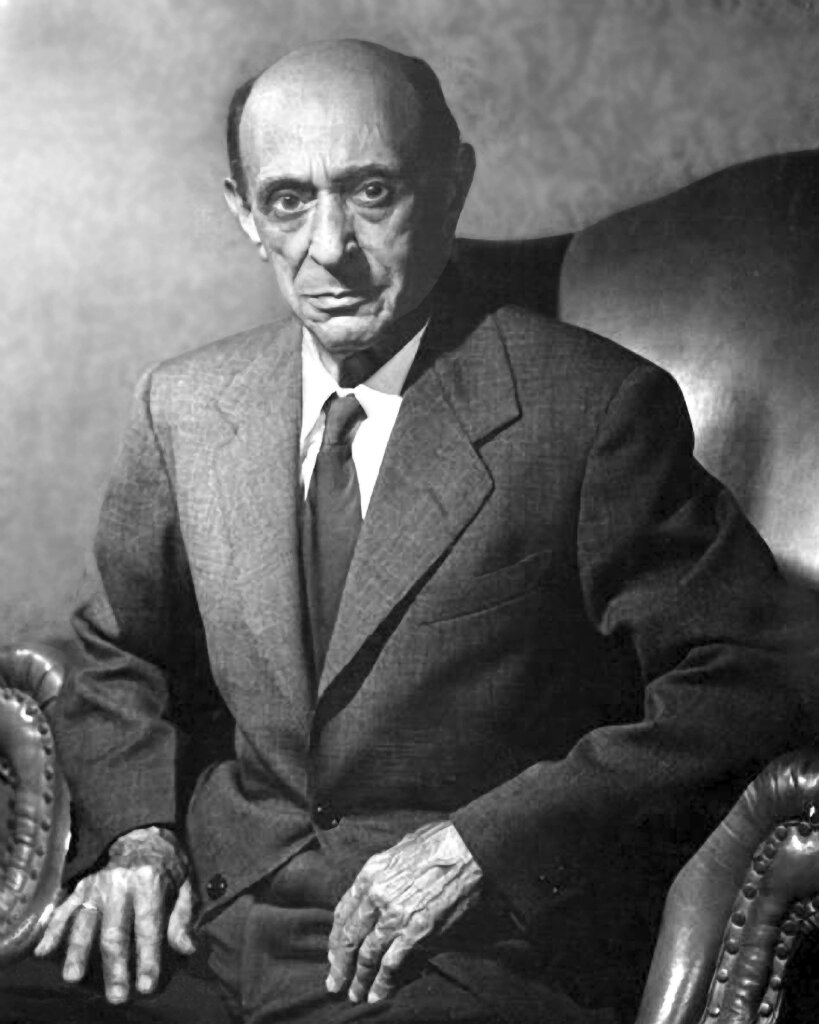The Palisades fire destroyed Larry Schoenberg’s Pacific Palisades house and Belmont Music Publishers, which stood in a building behind it. Courtesy of E. Randol Schoenberg
My family lost four homes in the Palisades fire. My wife and I lost our beach house. My uncle, brother and cousin in Pacific Palisades lost absolutely everything they owned. And we lost a priceless musical legacy: Thousands of one-of-a-kind documents belonging to my grandfather, Arnold Schoenberg, the groundbreaking 20th-century modernist composer and artist who escaped Nazi persecution and settled among his fellow artistic Jewish emigres in Los Angeles.

Fortunately, my grandfather’s music manuscripts and his acclaimed paintings have all been in Vienna since 1998; the fires turned my uncle and aunt’s Palisades home, where they were formerly stored, into ash and rubble. The loss includes decades of correspondence from orchestras and conductors around the world; all of the important notations that conductors made on scores they rented from the archive; and even some original scores of the arrangements other composers made of my grandfather’s works.
The destruction of the archives of Belmont Music Publishers, the company founded in 1965 that my uncle and aunt ran, speaks to how the Palisades fire erased, in one horrible morning, the physical remnants of an often-overlooked part of L.A. and Jewish history: The era when the city served as a refuge for a remarkable group of talented refugees, Jewish and non-Jewish, saved from certain death in Hitler’s Europe.
Besides my grandfather, who fled Berlin in 1933, those refugees included the composers Erich Wolfgang Korngold, Ernst Toch, Mario Castelnuovo-Tedesco, Alexandre Tansman, Ernst Krenek, and my other grandfather, Eric Zeisl, along with the authors Thomas Mann, Lion Feuchtwanger, Franz Werfel, Bertolt Brecht, Theodor W. Adorno, Vicki Baum, Salka Viertel and Emil Ludwig.
In Los Angeles, my grandfather, surrounded by this cadre, managed to rebuild his life. He bought a home on Rockingham Avenue in Brentwood; had two more children, taught music at nearby UCLA. He became friends and tennis partners with George Gershwin. Although he never wrote for the films, some of my grandfather’s students, such as Alfred Newman, David Raksin and Oscar Levant, became famous in Hollywood for their scores.
The author Lion Feuchtwanger also fled the Nazis, landing in California, where he and his wife Marta bought the Villa Aurora, which became a center of intellectual life far from the killing factories of Europe. Among those who frequented the rambling Spanish Revival mansion were Mann and Baum, along with Bruno Frank, Ludwig Marcuse, Franz Werfel and Bertolt Brecht, as well as other European expatriates like Charlie Chaplin and Charles Laughton.
It may be hyperbole to call the years my grandfather and his fellow exiles spent in the Palisades and nearby Santa Monica, Malibu and Brentwood a golden age. But for him, it was certainly a safe, secure and productive one. Upon arriving in Southern California, my grandfather said in a 1934 speech that he had been “driven into Paradise.”
And then, in an instant on Jan. 7, much of the beauty that drew him and his peers to the neighborhood burned to the ground.
When the fire broke out that morning, I saw no need to call 911, as the plume was obviously very visible to anyone in the area. But the flames looked so far away. I relaxed and went to lunch further east in the city, not worrying too much.
It wasn’t until later that afternoon that things began to look serious. With the fire increasingly out of control and the winds rising, my parents, my two sisters and I decided to evacuate my parents to our home in the eastern section of Brentwood. At around 8:30 p.m. the power went out, which often happens when there is wind. We set up some candles, got the flashlights and prepared for bed.
Just before putting my head down on the pillow, I checked my phone. There was a text from our neighbor Rob in Malibu saying “So sad to see our neighborhood in flames.” Then he sent me a photo of his TV, showing a view of the Pacific Coast Highway.
In the middle of the screen, next to a long fence and a familiar tree, was a giant fireball where our beach house, which my wife and I bought in 2007, should have been.
Gone, too, were so many of the homes in the Palisades that housed my grandfather’s generation of artists. The Villa Aurora appears to have survived, saved by the red tile roof characteristic of its architectural style — although its gardens were damaged.
Some of the losses in this fire will be, with some imagination, recoverable. My uncle plans to reconstruct Belmont Music Publishers digitally, making many hard-to-find scores and parts available electronically.
But there is no easy way to reconstitute the architecture and landscape that made the Palisades such a welcoming refuge for a traumatized generation. That physical history is lost, and it will be left to our generation to preserve the memory in books and archives.
Meanwhile, I’m hoping that by summer, our small plot of land in Malibu will be clean enough for us to set up some chairs and umbrellas and enjoy the spectacular ocean view that no fire can destroy. It’s beautiful here in Southern California, and welcoming, and it always will be.

I hope you appreciated this article. Before you go, I’d like to ask you to please support the Forward’s award-winning, nonprofit journalism so that we can be prepared for whatever news 2025 brings.
At a time when other newsrooms are closing or cutting back, the Forward has removed its paywall and invested additional resources to report on the ground from Israel and around the U.S. on the impact of the war, rising antisemitism and polarized discourse.
Readers like you make it all possible. Support our work by becoming a Forward Member and connect with our journalism and your community.
— Rachel Fishman Feddersen, Publisher and CEO
